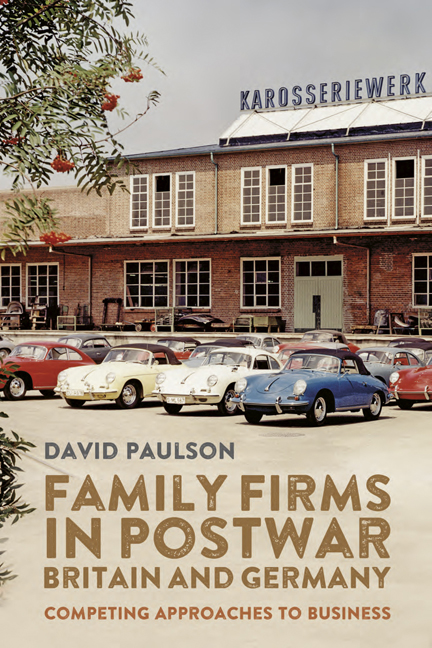Prologue
Published online by Cambridge University Press: 10 January 2024
Summary
Part Two contains the histories of six businesses, three each from Baden-Württemberg and the West Midlands, loosely connected in three industries and chosen to enable a comparison to be made between them. The themes addressed above in Part One are demonstrably critical to small-business success, and they show that, in most respects, the business ecosystem in Baden-Württemberg offered advantages to its resident businesses which their counterparts in the West Midlands did not enjoy. In the case studies that follow we will see more about the ecosystems within which each business operated, and will be able to consider the way they were managed and the culture that prevailed within them. The exploration of each company's history, and the consequent arrangement of each case study, have been dictated by the availability of archival sources. Though I have attempted so far as possible to pay attention to the same themes, the relative emphasis of one series of events over another is reflective of the information that was available to me.
In Chapters 5 and 6 we explore two family-owned companies which were indirectly connected through the paper industry. They shared some similarities: both remained attached to their original location, both shared a patriarchal culture and remained independent across changing generations. Both also ultimately declined when they proved unable to master changing business environments.
The first, Chr. Wandel KG of Reutlingen (Wandel), was a specialist manufac-turer of equipment used in paper-making. Founded in 1869 it was owned and managed by its founding family throughout its existence until insolvency in 1995. In many ways the quintessential, small Mittelstand company, it rebuilt itself after near-destruction in the Second World War, regaining a large export market. Wandel's history is interesting because of the extent to which management failings are obvious in its documentary record, providing a valuable corrective to stereotypical assumptions of Mittelstand managerial infallibility. Yet its continuing competitiveness in world markets over several decades speaks to the innate strengths of the business's culture and surrounding ecosystem.
- Type
- Chapter
- Information
- Family Firms in Postwar Britain and GermanyCompeting Approaches to Business, pp. 111 - 114Publisher: Boydell & BrewerPrint publication year: 2023

